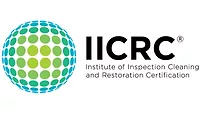IAQA Reaction: Proposed Washington, D.C. Mold Certification & Licensing Program

Use of a licensed mold assessor for all regulated mold remediation projects should be required under a proposed certification and licensure program being proposed by the District of Columbia, says the Indoor Air Quality Association.
IAQA has issued public comments on a draft of licensure/certification regulations for mold assessment and remediation being developed by the Washington, D.C., District Department of Environment (DDOE). Through regulation, DDOE hopes to prevent fraudulent operators from offering their services without being certified or licensed, thereby guaranteeing a basic level of competence in the performance of this activity.
“We are taking multiple positions on elements of a rulemaking process important to our members,” Cole Stanton, chair of the IAQA Government Affairs Committee, said. “In response to an invitation from DDOE for public comment, our members responded via survey consensus that the points in the bulleted list were important to them. On their behalf, IAQA has thus submitted these statements and indicated that we feel DDOE should consider ensuring that provisions in eventual regulations should reflect the criteria inherent in our points, and that in doing so the regulations will better serve the general interests of the public.”
IAQA’s public comment included the following:
-
The District should require the use of a licensed mold assessor for all regulated mold remediation projects. There should be no provision for an ability to waive this requirement. Among the types of remediation projects for which this requirement would be applicable, our members expressed consensus that this would be applicable to tenant occupied and/or not-owner occupied properties. Our members are very concerned about the negative impacts on property owners and residents if potential conflicts of interest are not prevented.
-
If there is a relationship between an assessor and remediator working on the same project, that relationship must be disclosed.
-
Remediators must be required to stipulate in writing that their customer has the right to utilize a third-party assessment or testing company.
-
Licensing should exist for all individuals involved with mold assessment or remediation. In addition, there was discussion of some criteria for entry level workers to work on a remediation project to gain the necessary experience to become fully licensed professional mold remediators or assessors. IAQA members would like to see that possibility explored in this current rulemaking process.
The Indoor Air Quality Association (IAQA) is a nonprofit organization dedicated to bringing practitioners together to prevent and solve indoor environmental problems for the benefit of customers and the public. IAQA was established in 1995 and is the nation’s largest indoor air quality trade association with over 2,000 members and some 15 local chapters.
More information is available at www.iaqa.org/news
Looking for a reprint of this article?
From high-res PDFs to custom plaques, order your copy today!






